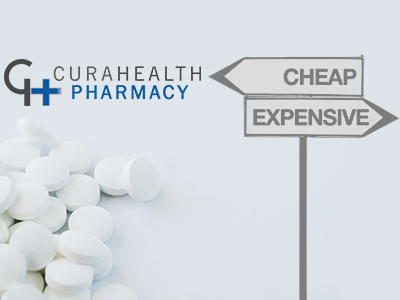Prednisone (Deltasone, Rayos)
Dosage: 40 mg, 20 mg, 10 mg, 5 mg
Price: starts from $0.33 per pill



Dosage: 40 mg, 20 mg, 10 mg, 5 mg
Price: starts from $0.33 per pill



Prednisone treats conditions such as asthma, inflammatory bowel disease, arthritis, and blood or bone marrow conditions. Many find it helps with inflammatory conditions where the immune system mistakenly attacks itself.
You can take Prednisone for as long as you need it. How long you take it will depend on the condition you plan to treat and the dosage required for it.
Those who plan to take this drug over the long term may find it helpful to know the potential side effects that you may encounter.
If you ever have questions or concerns, tell them to your doctor. They will help you to get the right dosage and ensure that this treatment plan would be right for you. Prednisone isn’t the right choice for everyone. Long-term use could lead to osteoporosis and bone loss.
Prednisone can be used to treat a number of conditions making it a useful drug.
Some of the conditions that it can treat include:
Prednisone works because it lowers your immune system’s response to diseases that will cause inflammation.
When you go to take Prednisone, you will take the medication by mouth with food or milk. This prevents an upset stomach after taking it. The one exception to that rule is if you see your tablets labeled as “gastro resistant” or “enteric coated.”
In those cases, you can take them without food, but make sure to swallow it whole. Take the medication as directed by your doctor.
Prednisone classifies as a corticosteroid, which is a medication that works on the immune system to reduce allergic reactions, redness, swelling, and itching.
The dosage depends on the response to treatment and your medical condition. If you take this pill any other way than daily, you may want to keep it marked on the calendar to make it easier to track. Be aware of how you shouldn’t stop suddenly when taking Prednisone.
Some conditions will worsen if you stop taking this medication suddenly.
Many who take Prednisone don’t experience the serious side effects, which make it a good one to take.
Some of the common side effects that you can encounter include:
Speak with your doctor if the above side effects worsen, but in many cases, they will go away on their own.
If you experience any of the serious side effects below, you should speak with your doctor immediately:
In rare cases, Prednisone can spike your blood sugar, which can be dangerous for diabetics, and in some cases, can cause diabetes. Increased thirst and urination are examples of high blood sugar. Those who already have diabetes should regularly check their blood sugar.
On rare occasions, people encounter an allergic reaction that is very serious. You should seek immediate medical attention if you feel severe dizziness, itching, rash, swelling, and trouble breathing.
This drug contains many inactive ingredients that can put you at risk of an allergic reaction. Give your doctor your full medical history so that they can determine if Prednisone is right for you.
The things that you should especially tell them about include:
The usual dose on Prednisone varies from 5 mg per day to 60 mg per day, depending on the condition. In some cases, the doctor may prescribe an even higher dose than that. The side effects you encounter often depend on the dosage and for how long you take the drug.
Usually, Prednisone acts fast and works within 1 to 2 hours. If the Prednisone you’re taking isn’t effective, you should stop taking it as soon as possible.
When Should I Take Prednisone?
Most recommend that you take Prednisone in the morning because it prevents you from struggling to sleep. This is provided that you only take Prednisone once a day.
What to Avoid While Taking Prednisone?
Taking Prednisone will often raise your glucose levels, which can cause weight gain and potentially diabetes.
For that reason, you should try to avoid some of the simple carbohydrates that could worsen it, such as soft drinks, candy, syrup, cookies, and junk foods in general are best avoided.
Is Prednisone Safe for the Kidneys?
In fact, you can even use Prednisone in some cases to manage certain types of kidney disorders. An example would be for conditions, such as systemic vasculitis, lupus nephritis, and glomerulonephritis.
Can I Take Vitamins with Prednisone?
Many medicines can impact the way that Prednisone works, and this can increase your risk of side effects. For that reason, you should tell your doctor about any medications, vitamins, or herbal supplements that you might be taking because it could react negatively with Prednisone.
Always check to see that the medicine is safe to take with Prednisone before you start taking it.